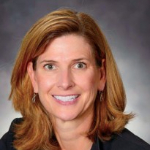 The industry event anyone in secured finance attends now celebrates its 77th year. SFNet is set to make the Arizona convention a memorable one. Click below to register.
The industry event anyone in secured finance attends now celebrates its 77th year. SFNet is set to make the Arizona convention a memorable one. Click below to register.

Janet Jarrett
Managing Director - Head of Asset-Based Lending, Asset Finance Group, SunTrust Robinson Humphrey
Biography:
Janet Jarrett is a managing director, head of Asset Based Lending Group (ABL) at SunTrust Robinson Humphrey, Inc. (STRH). Prior to her current role, she was head of originations for the ABL Group at STRH. Janet has over 20 years of experience in corporate and investment banking with an emphasis in asset-based capital markets and leveraged finance.
Prior to joining STRH in 2013, Janet was a managing director with Bank of America Merrill Lynch, Leveraged Finance and Asset Based Capital Markets group, responsible for originating, structuring and distributing domestic and international asset-based and leveraged transactions.
Jarrett holds a B.S. and M.B.A. from Wake Forest University.
What advice would you offer to women just starting out in the industry?
The asset-based lending market has changed considerably over the last 10-15 years. Maintenance covenants have given way to springing covenants; technology has simplified reporting requirements and made the product more accessible; market depth for individual transactions has surged, in certain instances, to $4B+; unique asset classes have driven the convergence of the ABL and cash flow structures. No longer is this type of financing reserved for companies in transition but rather it is broadly appealing to below-investment-grade cyclical issuers.
As the ABL product and market continue to evolve, intellectual curiosity, subject matter expertise, strong credit foundation, and an understanding of capital markets will be important foundational skills for the next generation of ABL professionals. The ability to understand the credit (and market) continuum and structure accordingly will be differentiating. I would encourage women entering the field today to ask lots of questions — not just technical ABL questions but contextual questions; don’t worry about “staying in your lane”, try to understand adjacent products and their impact on ABL structures; extrapolate from what you have learned. Make a habit of collaborating with peers across product groups; they can produce some of the best ideas.
What do you know now that you wish you knew in the beginning of your career?
I heard someone once say that it’s not a career ladder; it’s more like a jungle gym and I think that is very apt. When I started my career, I thought in terms of the next title and focused on what it would take to get the next promotion. What I have learned is that career progression is not linear, rather the accumulation of skills along the way which prepare you for the next opportunity -- and that opportunity may not be what you expect. It’s important to be open to those opportunities and challenge yourself to think broadly about how you can apply your skills across different disciplines.
What kind of role has mentoring and/or sponsorship played in your career?
Mentorship has been very important. Forming relationships with people who can offer perspective, advice and insight that you wouldn’t necessarily get on your own is critical to understanding how to navigate your work environment. It also allows you to understand how you are perceived so you can accentuate what you do well or change those habits which aren’t as effective. Mentors can give you visibility within the organization and create situations where you can differentiate yourself. Mentors can be your best advocates. Often decisions are made when you are not in the room to represent yourself, so you need someone in that room who will.
I have an “Advisory Board” on which I rely — a collection of mentors from over the years, some within the financial services industry, some outside the industry, both male and female. I often ask them advice on the same issue. While their advice is rarely the same, it is always very helpful for me to hear multiple perspectives to determine an approach that most resonates with me.
What do you think the industry could do to attract and retain the best and the brightest today?
In order to attract the best and brightest to the industry, we need to create opportunity and foster an environment that rewards creativity. Talented individuals want to be challenged; they want responsibility; they want to challenge the status quo. Early in my ABL career, a very senior ABL risk officer was fond of saying “creativity equals loss”. The creativity to which I am referring is not ignoring basic ABL tenets in favor of booking business, but rather building on these fundamentals to drive innovation.
77th Annual Convention
 The industry event anyone in secured finance attends now celebrates its 77th year. SFNet is set to make the Arizona convention a memorable one. Click below to register.
The industry event anyone in secured finance attends now celebrates its 77th year. SFNet is set to make the Arizona convention a memorable one. Click below to register.
